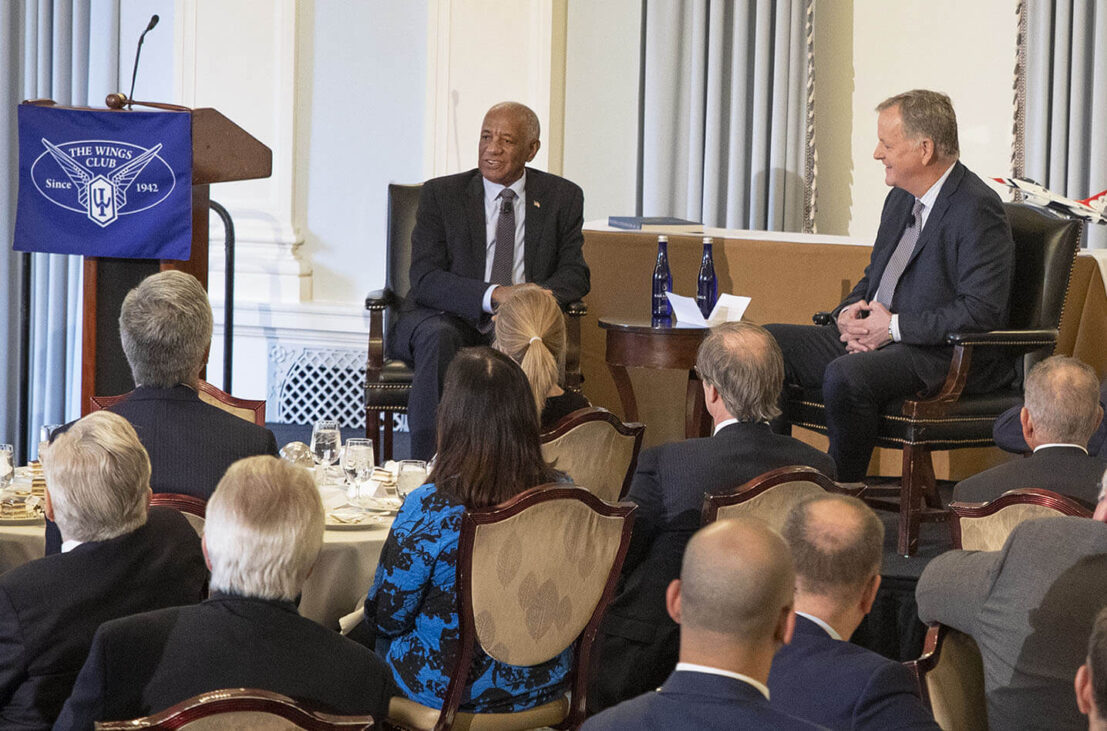
Feb. 25, 2022
Four-star U.S. General (ret.), Thunderbirds team member, Wright Brothers Memorial Trophy recipient and former NBAA Board Chair Lloyd “Fig” Newton was honored this week for his storied career by the Wings Club Foundation at an event where he discussed how the lessons learned in his incredible life’s experience shape his hopes for the future of aviation.
Newton offered his perspectives in a luncheon discussion for the “Sight Lecture” luncheon, hosted by the Wings Club of New York on Feb. 24, and moderated by American Airlines Chairman and CEO Doug Parker.
During the conversation, Newton recounted his journey from a small town in South Carolina, to college, where he discovered a passion for flight that led to a remarkable U.S. Air Force career.
Newton, the first member of his family to attend college, graduated from Tennessee State University in Nashville, TN. In his 34 years with the Air Force, he had more than 20 assignments, including service in Vietnam, and his selection as the first Black member of the famed Thunderbirds squadron.
“After seeing the Air Force flying while at college, I knew I wanted to be just like them,” Newton said. “I made that my driving passion and, sure enough, about 10 years later, I was a member of the Thunderbirds.”
Newton said when he was applying to join the Thunderbirds, he was not focused on the fact the squadron had never had an African American on the team, and he refused to let that hold him back from achieving his dream.
He applauded students at the luncheon from the Red Tail Flight Academy, which was founded in honor of the Tuskegee Airmen to enable more people of color with access to training and career opportunities in aviation.
Parker and Newton stressed the importance of diversity for the aviation industry and the wider workforce. Airlines and other companies “need to take advantage of the full field of talent available to them and break down barriers to entry,” Newton said.
“Many people point to me among others as an example. They say, ‘If he made it, there’s no reason anyone else can’t’,” Newton continued. “But it doesn’t work that way. In order for people to succeed, there need to be opportunities for them to do so.”
Turning to Parker, Newton urged action: “We need to create those opportunities, so I suggest we get busy.”


 International Business Aviation Council Ltd.
International Business Aviation Council Ltd.